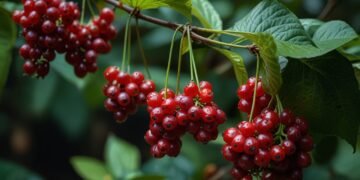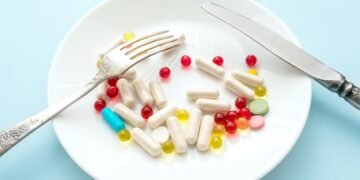Maintaining a healthy kidney function is crucial, especially for individuals with kidney disease. A well-balanced diet plays a significant role in supporting kidney health. Certain vegetables are rich in essential nutrients while being low in potassium, phosphorus, and sodium, making them ideal for a kidney-friendly diet.

This article will explore the top 5 vegetables that are not only delicious but also packed with antioxidants and anti-inflammatory compounds that help protect kidney function. The vegetables that will be covered are red bell peppers, cabbage, cauliflower, onions, and garlic. Incorporating these foods into your diet can be beneficial for overall kidney wellness.
Key Takeaways
- Including kidney-friendly vegetables in your diet can support kidney health.
- Vegetables low in potassium, phosphorus, and sodium are ideal for kidney wellness.
- Red bell peppers, cabbage, cauliflower, onions, and garlic are the top 5 kidney-friendly vegetables.
- These vegetables are rich in antioxidants and anti-inflammatory compounds.
- A well-balanced diet is crucial for maintaining healthy kidney function.
Understanding Kidney Health and Nutrition
Maintaining kidney health is crucial, and understanding the role of nutrition is the first step towards achieving it. A well-balanced diet can significantly impact kidney function, especially for individuals with kidney disease.
How Diet Impacts Kidney Function
Dietary choices play a critical role in managing kidney health. Consuming high amounts of sodium can lead to increased blood pressure, putting additional strain on the kidneys. Similarly, managing potassium intake is vital to prevent complications related to heart and muscle function.
Key Nutrients to Monitor for Kidney Health
For individuals with kidney disease, monitoring intake of phosphorus, potassium, and sodium is crucial. Additionally, protein consumption needs to be balanced to support overall health without overburdening the kidneys. Adjusting these nutrients according to the stage of kidney disease is essential for maintaining optimal kidney function.
The Connection Between Vegetables and Kidney Function
Eating the right vegetables can significantly impact kidney health and overall well-being. Vegetables are rich in antioxidants, fiber, and other essential nutrients that support kidney function.
Antioxidants and Anti-inflammatory Properties
Vegetables are packed with antioxidants and anti-inflammatory compounds that help protect the kidneys from damage. Antioxidants neutralize free radicals, which can harm kidney cells. By incorporating antioxidant-rich vegetables into their diet, individuals with kidney disease can potentially slow disease progression.
Low Potassium, Phosphorus, and Sodium Content
Many vegetables are naturally low in potassium, phosphorus, and sodium, making them ideal for a kidney-friendly diet. Cooking methods can further reduce the potassium content in some vegetables. A diet rich in these vegetables allows for greater dietary variety while adhering to kidney diet restrictions.
| Mineral | Importance for Kidney Health | Vegetable Sources |
|---|---|---|
| Potassium | Balancing potassium levels is crucial to prevent complications. | Cabbage, Cauliflower |
| Phosphorus | High phosphorus levels can lead to bone and cardiovascular issues. | Red Bell Peppers, Onions |
| Sodium | Excessive sodium can increase blood pressure and strain kidneys. | Garlic, Cabbage |

What Makes a Vegetable Kidney-Friendly?
The right vegetables can support kidney function, but what makes them kidney-friendly? A kidney-friendly vegetable is one that provides essential nutrients while minimizing the risk of overloading the kidneys with harmful substances.
Nutrient Profiles That Support Kidney Health
Vegetables that are low in potassium, phosphorus, and sodium are generally considered beneficial for kidney health. These nutrients can be challenging for the kidneys to process, especially for individuals with kidney disease. Focusing on vegetables with favorable nutrient profiles can help support overall kidney function.
Vegetables to Limit or Avoid
Some vegetables are high in potassium and should be limited or avoided by people with kidney concerns. For instance, potatoes, tomatoes, spinach, and avocados are typically high in potassium. While these can still be enjoyed in small portions or with special preparation methods, it’s essential to be mindful of their impact. Additionally, vegetable juices are often concentrated sources of potassium and should generally be avoided. Canned vegetables with added salt should also be avoided or thoroughly rinsed before consumption.

Red Bell Peppers: Colorful Kidney Protectors

Red bell peppers are not only colorful but also packed with nutrients that support kidney health. They are an excellent addition to a kidney-friendly diet, providing essential vitamins and antioxidants.
Nutritional Profile and Kidney Benefits
Red bell peppers are low in potassium, making them an ideal choice for individuals with kidney disease. They are rich in vitamin C and antioxidants, which help protect the kidneys from damage. Their nutritional profile supports overall kidney wellness.
Delicious Ways to Include Red Bell Peppers in Your Diet
Enjoy red bell peppers raw with hummus or a low-sodium dip as a crunchy snack. Roasting them enhances their natural sweetness and makes them a versatile ingredient for various dishes. Add diced red bell peppers to omelets, salads, and stir-fries for a burst of color and flavor. You can also stuff them with lean protein and rice for a nutritious meal.
Cabbage: A Cruciferous Kidney Superfood

Cabbage is emerging as a key vegetable in the diet of individuals looking to support their kidney wellness. This cruciferous superfood is packed with nutrients that can help promote kidney health.
How Cabbage Supports Kidney Health
Cabbage is rich in antioxidants and has anti-inflammatory properties, which can help protect the kidneys from damage. It is also low in potassium, making it a suitable choice for those with kidney disease who need to monitor their potassium intake. Additionally, cabbage is a good source of fiber, vitamins, and minerals that support overall health.
Simple Cabbage Recipes for Kidney Wellness
Incorporating cabbage into your kidney-friendly diet can be both easy and delicious. You can enjoy cabbage raw in coleslaw or as a topping for fish tacos. Steaming or boiling cabbage and seasoning it with herbs and a squeeze of lemon juice makes for a tasty kidney-friendly dish. Cabbage rolls made with lean ground turkey and rice are another nutritious option. For added flavor, try making quick-pickled cabbage as a tangy side dish or sandwich topping.
Some other ideas for preparing cabbage include shredding it and using it as a low-potassium substitute for lettuce in salads and wraps. Cabbage can also be incorporated into stir-fries with other kidney-friendly vegetables, making for a nutritious and filling meal.
Cauliflower: Versatile and Kidney-Friendly

Cauliflower stands out as a kidney-friendly vegetable due to its nutritional profile and versatility. It can be prepared in various ways to support a kidney-friendly diet.
Cauliflower’s Kidney-Supporting Nutrients
Cauliflower is rich in vitamins and minerals that support kidney health. It is low in potassium, making it an ideal vegetable for those managing kidney disease. The fiber content in cauliflower also aids in maintaining a healthy digestive system, which is crucial for overall kidney function.
Creative Ways to Substitute High-Potassium Foods with Cauliflower
Cauliflower can be used as a substitute for high-potassium foods in various dishes. For example, it can be made into “cauliflower rice” as a low-potassium alternative to regular rice. It can also be mashed as a delicious substitute for high-potassium mashed potatoes. Additionally, cauliflower can be used to make a “pizza crust” as a lower-sodium alternative to traditional pizza.
Onions: Flavorful Additions for Kidney Health

Incorporating onions into your diet can be a simple yet effective way to enhance the flavor of your meals while supporting kidney health. Onions are a versatile ingredient that can be used in a multitude of dishes, from soups to salads, and they offer several health benefits.
Onions’ Antioxidant and Anti-inflammatory Properties
Onions are rich in antioxidants and have anti-inflammatory properties, which can help protect the kidneys from damage. The antioxidants in onions, such as quercetin, can help reduce oxidative stress, while their anti-inflammatory compounds may help mitigate inflammation in the kidneys.
Using Onions to Replace Salt in Kidney-Friendly Cooking
One of the significant advantages of using onions in cooking is their ability to add flavor without adding sodium. For individuals with kidney disease, limiting sodium intake is crucial, and onions can be a valuable ingredient in reducing salt consumption. By caramelizing onions, you can bring out their natural sweetness, which can enhance the flavor of dishes without the need for salt. Additionally, onions can be used as a base for soups, stews, and sauces, providing a rich flavor profile that is both kidney-friendly and delicious.
To maximize the benefits of onions in your kidney-friendly diet, try using a variety of onions, such as red, white, and yellow. You can enjoy them raw in salads or cooked as a topping for various dishes. Experimenting with different cooking methods, such as caramelizing or roasting onions, can also help bring out their natural flavors.
Garlic: The Aromatic Kidney Helper

Garlic, known for its aromatic properties, also plays a significant role in maintaining kidney wellness. It offers a flavorful way to support kidney health without adding extra salt.
Garlic’s Impact on Kidney Function
Garlic has been shown to have a positive impact on kidney function due to its antioxidant and anti-inflammatory properties. These properties help in reducing inflammation and oxidative stress, which can be beneficial for individuals with kidney disease.
Incorporating Garlic into Your Kidney-Friendly Diet
To incorporate garlic into your diet, you can buy it fresh, bottled, minced, or powdered, and add it to various dishes such as meat, vegetable, or pasta. Roasting a head of garlic can mellow its flavor and create a spreadable, salt-free flavor enhancer. Garlic powder is a great substitute for garlic salt, especially for those on a dialysis diet.
Some practical ways to use garlic include making garlic-infused oils for cooking or as bread dips, and creating garlic-herb blends to replace high-sodium seasonings. Proper storage of garlic is essential to maintain its potency and health benefits.
By incorporating garlic into your kidney-friendly diet, you can enjoy flavorful food while limiting sodium intake. Cooking garlic in different ways can alter its flavor profile and health properties, offering versatility in your culinary creations.
Kidney Superfoods Beyond Vegetables
In addition to vegetables, certain fruits and protein sources can provide essential nutrients for kidney health. A balanced diet that includes a variety of whole foods can help support kidney function and overall well-being.
Fruits That Support Kidney Health
Fruits are rich in antioxidants, fiber, and other nutrients that can help support kidney health. While specific fruits are beneficial, it’s essential to choose fruits that are low in potassium and other minerals that can be problematic for people with kidney disease.
Protein Sources for Kidney Wellness
Egg whites and fish are excellent protein sources for people with kidney concerns. Two egg whites provide about 7 grams of high-quality protein with minimal phosphorus. Fish, especially cold-water fish like salmon, offers omega-3 fatty acids that help reduce inflammation and support heart health. A 3-ounce serving of wild salmon contains about 50 mg of sodium, 368 mg of potassium, and 274 mg of phosphorus.

It’s crucial to balance protein intake, as excess protein can burden the kidneys. Working with a renal dietitian can help determine the appropriate protein intake based on individual kidney disease stage and treatment approach.
Creating a Complete Kidney-Friendly Meal Plan
Developing a kidney-friendly meal plan involves making informed dietary choices that support overall kidney health. For individuals with kidney disease, it’s crucial to work with a healthcare provider to tailor a diet to their specific needs.
Balancing Nutrients Throughout the Day
A kidney-friendly diet requires balancing nutrients like protein and limiting others such as sodium and phosphorus. It’s essential to distribute these nutrients evenly throughout the day to support kidney function.
Sample Meal Ideas Featuring Kidney-Friendly Vegetables
Some sample meal ideas include egg whites with sautéed red bell peppers and onions for breakfast, a cabbage-based salad with appropriate protein for lunch, and roasted cauliflower with garlic and herb-seasoned chicken for dinner. Snacks can include raw bell pepper strips with hummus.

Cooking Methods That Preserve Kidney-Friendly Benefits
To maximize the kidney-friendly benefits of vegetables, it’s crucial to employ cooking methods that preserve their nutritional value. The right techniques can help retain essential nutrients and flavor without adding harmful substances like excessive sodium.
Steaming and Boiling Techniques
Steaming and boiling are excellent methods for cooking vegetables while preserving their nutrients. Steaming helps retain vitamins and minerals, especially water-soluble vitamins like vitamin C and B vitamins. When boiling, use minimal water and cook for the shortest time necessary to preserve nutrients. Both methods are low in fat and don’t require added salt, making them ideal for a kidney-friendly diet.
Roasting and Sautéing Without Adding Sodium
Roasting and sautéing can bring out the natural flavors of vegetables without adding sodium. Use herbs and spices to enhance flavor instead of salt. Healthy oils like olive oil are suitable for roasting and sautéing. To achieve caramelization without salt, cook vegetables at the right temperature and use a small amount of oil. Sodium-free marinades and dry-roasting techniques can also enhance flavor. Adding a squeeze of lemon juice or vinegar can brighten flavors without adding salt.
Seasonal Availability of Kidney-Friendly Vegetables
Eating kidney-friendly vegetables in season not only ensures freshness but also maximizes nutritional benefits. The availability of these vegetables varies throughout the year, impacting their nutritional content and taste. For individuals with kidney concerns, being aware of what’s in season can help in planning a more effective and enjoyable kidney diet.
Growing Your Own Kidney-Supporting Vegetables
Growing your own kidney-friendly vegetables can be a rewarding experience, providing fresh produce right in your backyard. Vegetables like cabbage and cauliflower are relatively easy to grow and can be incorporated into your diet in various ways. By doing so, you can ensure a steady supply of fresh, nutrient-rich food for your kidney health.
Shopping Tips for Fresh Kidney-Friendly Produce
When shopping for kidney-friendly vegetables, look for fresh, vibrant produce. Tips include buying in season, choosing organic when possible, and properly storing vegetables to maintain their nutritional value. By following these guidelines, you can enjoy a variety of delicious and healthy kidney-friendly food options as part of your diet. People with kidney issues can particularly benefit from these shopping strategies to support their overall health.
Managing Kidney Disease Through Diet
A well-planned diet is essential for individuals with kidney disease to manage their condition effectively. This involves making informed choices about the foods they eat to maintain optimal levels of key nutrients.
Working with a Renal Dietitian
Collaborating with a renal dietitian can provide personalized guidance on managing kidney disease through diet. These professionals can help create a tailored meal plan that takes into account an individual’s specific nutritional needs and health goals.
Tracking Your Nutrient Intake
Monitoring nutrient intake is crucial for individuals with kidney disease. This includes tracking consumption of potassium, phosphorus, sodium, and protein. Techniques for tracking include:
- Using a food diary to record daily intake
- Utilizing smartphone apps designed for tracking kidney diet nutrients
- Carefully reading food labels to identify hidden sources of key nutrients
Regular blood tests are also essential to monitor how dietary changes affect blood levels, allowing for adjustments to be made as needed.
| Nutrient | Importance | Tracking Method |
|---|---|---|
| Potassium | Maintaining healthy levels | Food diary, smartphone apps |
| Phosphorus | Supporting bone health | Food labels, regular blood tests |
| Sodium | Managing blood pressure | Food diary, low-sodium cooking |
Common Myths About Kidney Diets
There’s a lot of misinformation surrounding diets for people with kidney disease. Many individuals struggle to separate fact from fiction when it comes to managing their kidney health through dietary changes.
Debunking Misconceptions
One common myth is that people with kidney disease need to completely avoid all vegetables. However, certain vegetables are not only safe but also beneficial for kidney health. Vegetables like red bell peppers, cabbage, and cauliflower are rich in antioxidants and have anti-inflammatory properties that support kidney function.
Evidence-Based Approaches
Current evidence-based approaches to kidney nutrition emphasize the importance of a balanced diet tailored to an individual’s specific needs. Research has shown that restricting certain nutrients like potassium, phosphorus, and sodium can help manage kidney disease. The benefits of kidney-friendly vegetables are backed by scientific evidence, highlighting the importance of incorporating them into one’s diet.
It’s crucial to work with a healthcare professional to develop a personalized diet plan. By doing so, individuals with kidney disease can make informed choices that support their overall health and well-being.
Special Considerations for Different Stages of Kidney Disease
As kidney disease progresses, dietary needs evolve, requiring careful adjustments to maintain optimal health. The level of kidney damage dictates the severity of dietary restrictions. Understanding these changes is crucial for effective disease management.
For individuals with early-stage kidney disease, the focus is on maintaining a balanced diet that supports overall health while minimizing the strain on the kidneys. A renal dietitian can help create a personalized meal plan.
Early-Stage Dietary Recommendations
In the early stages, patients are advised to limit their intake of potassium and phosphorus. Incorporating kidney-friendly vegetables like red bell peppers, cabbage, cauliflower, onions, and garlic can be beneficial. These vegetables are not only low in harmful nutrients but also rich in antioxidants and fiber.
Adjustments for Advanced Kidney Disease
As kidney disease advances, dietary restrictions become more stringent. Patients may need to limit protein intake and closely monitor potassium and phosphorus levels. Even in advanced stages, the five kidney-friendly vegetables can still be part of the diet, provided they are prepared using appropriate cooking methods to minimize nutrient retention.
Patients on dialysis have different dietary needs compared to those not yet on dialysis. Regular monitoring and adjustments to the diet are crucial as kidney function changes. Balancing dietary restrictions with quality of life considerations is essential for overall well-being.
Conclusion: Embracing Vegetables for Optimal Kidney Health
As we’ve explored, certain vegetables play a crucial role in supporting kidney health and overall well-being. The five vegetables highlighted – red bell peppers, cabbage, cauliflower, onions, and garlic – offer essential nutrients while being gentle on the kidneys. By incorporating these kidney-friendly foods into your diet, you can significantly impact your quality of life, especially if you’re managing kidney disease. Work with your healthcare provider to make informed choices. Embracing these vegetables can lead to a healthier you, proving that kidney-friendly eating can be both delicious and nutritious.








































Discussion about this post